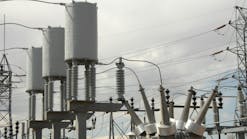Even though four of its five members stated that a proposed wind energy transmission line would be in the public interest, the Missouri Public Service Commission last week said it could not grant Clean Line Energy Partners a permit for development of the Grain Belt Express. The 780-mile transmission line would bring power from Kansas wind farms to Missouri, Illinois, Indiana and beyond.
The Commission determined it lacks the statutory authority to grant a certificate of convenience and necessity because GBE failed to obtain all county assents necessary as required by a Missouri Western District Court of Appeals decision in a recent Ameren Transmission Co. of Illinois CCN case involving a proposed transmission line in northeast Missouri.The Ameren case involved the appeal of a Public Service Commission order. In that case, Ameren had not yet received approval from the relevant county commissions at the time the Commission issued its order on April 27, 2016.
According to a report from Midwest Energy News, a lawyer representing clean-energy interests said that another appeal is a near certainty. Mark Lawlor, Clean Line’s vice president for development, wasn’t quite as definite. “I think it’s sort of placed the burden on Clean Line to go ask the courts to sort this out,” he said. “Because of this legal quagmire, the project can’t move forward. It’s a broken system. It’s a problem for Missouri.”
A New York analyst company, Enerknol, released a report this week stating that existing state regulations are inadequate to expedite multi-state projects and impose varying development timelines, creating barriers for long-distance transmission projects, with Missouri being a prime example.
The Grain Belt Express has received certificates of convenience and necessity from Illinois, Indiana and Kansas, but whether Missouri will ever come through with approvals remains to be seen.
The Commission’s vote was 5 to 0. A concurrence was issued along with the Commission’s order explaining that four of the five commissioners found there was a need for the service offered by the GBE project, that GBE was qualified to provide the proposed service, that GBE had the financial ability to provide the service, that GBE’s proposal was economically feasible, and that the project would have been in the public interest. Accordingly, those commissioners indicated they would have approved the GBE application but for the Western District Court of Appeals’ ATXI opinion.



